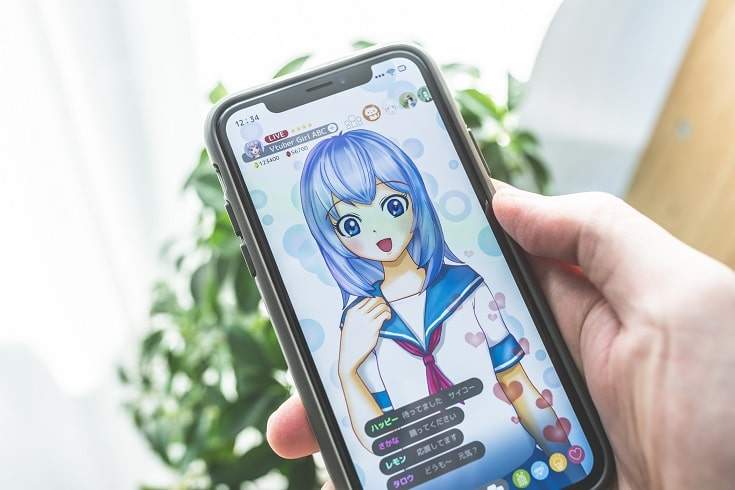Legal Liability for Deliberately Licking Dishes and Other Nuisance Behaviors at Consecutive Conveyor Belt Sushi Restaurants?

There was a time when videos and photos of employees entering refrigerators in convenience stores or consuming products without permission were widely spread on social media. This led to the identification of the stores involved and even escalated to boycott movements, a phenomenon known as “part-time job terrorism”. Although instances of “part-time job terrorism” are still occasionally seen, recently, the focus has shifted to cases of customers causing damage to store equipment and products.
What kind of legal responsibility arises from nuisance behavior by customers? In this article, we will explain using the example of the spread of prank videos involving products and equipment in conveyor belt sushi restaurants.
Nuisance Behavior at Conveyor Belt Sushi Restaurants
In January 2023, videos of customers engaging in nuisance behavior at conveyor belt sushi restaurants were repeatedly posted on social media.
At the conveyor belt sushi chain “Sushiro,” videos were circulated showing a young man smearing saliva from his finger onto sushi traveling on the conveyor belt, and licking the soy sauce dispenser and unused teacups on the table before returning them.
Furthermore, at the “Hama Sushi” chain operated by Zensho Holdings, videos were posted and widely shared on social media showing some customers adding wasabi to the sushi products without permission, which has drawn criticism. Other videos showing behavior such as taking sushi from plates ordered by others without taking the plate itself have also sparked outrage.
These incidents have been taken seriously by the restaurant operators, leading to the submission of damage reports to the police.
Reference article: Saliva on sushi, licked teacups returned… Nuisance videos at Sushiro too, consultation with police (Sankei Newspaper Article)
According to reports, some companies have expressed their intention to pursue both criminal and civil liabilities, and future developments are being closely watched.
Potential Criminal Liability for Nuisance Behavior at Conveyor Belt Sushi Restaurants
Videos of various nuisance behaviors at conveyor belt sushi restaurants are being widely shared, and these actions could potentially lead to criminal liability. In this article, we will discuss the crimes that could potentially be committed, based on the reported content at the time of writing.
Property Damage Crime Can Be Established Even Without Physical Destruction
Actions such as spitting on the rotating sushi or licking the soy sauce bottles and teacups left for other customers and then returning them to their original place could potentially constitute a property damage crime.
From the standpoint of precedents and common understanding, the term “damage” in the property damage crime refers to any act that harms the utility of property. In other words, physical destruction of the property is not necessary. For example, in a precedent, it was indicated that the crime can be established even in cases such as urinating on dishes, as it harms the utility of the object (Supreme Court, April 16, 1909 (Meiji 42), Criminal Record 15, p. 452).
Therefore, depending on the specific circumstances, actions such as spitting on the rotating sushi or licking the soy sauce bottles and teacups left for other customers and then returning them to their original place could potentially constitute a property damage crime (Japanese Penal Code Article 261).
Possibility of Establishing a Crime of Obstruction of Business by Deception
Actions such as spitting on the rotating sushi could also potentially constitute a crime of obstruction of business.
The crime of obstruction of business is established when business is obstructed by spreading false rumors, deception, or force (Japanese Penal Code Article 233, second half, and Article 234).
The term “deception” here refers to deceiving someone or taking advantage of someone’s misunderstanding or ignorance. For example, suppose you spit on sushi at a sushi restaurant, lick the soy sauce bottles and teacups, return them to their original place, and then post the situation on social media. Even if the sushi restaurant in question has excellent hygiene and safety, viewers who see this may mistakenly believe that there are hygiene issues and hesitate to eat at the sushi restaurant.
Even without posting on social media, if you engage in the above actions, the sushi restaurant may suspect that other soy sauce bottles, etc., may also be contaminated. As a result, they may have to wash all the soy sauce bottles, etc., or in some cases, discard them. In this way, the actions of just one person can necessitate a complete review of the restaurant’s hygiene. Therefore, the above actions could potentially constitute a crime of obstruction of business by deception.
Note that the crime of obstruction of business can be established by actions that could potentially lead to a criminal result, even if no actual criminal result has occurred (abstract danger offense). In other words, even if it cannot be proven that viewers of social media stopped going to the sushi restaurant as a result of the perpetrator’s actions, or that the sushi restaurant actually washed or discarded items such as soy sauce bottles and teacups, the crime of obstruction of business could potentially be established.
Establishment of Defamation
If you post a video of actions such as spitting on sushi, it becomes known to an unspecified number of people that sushi with hygiene issues is being served to customers at that restaurant. If you post facts that defame the restaurant’s reputation on social media, you could potentially be charged with defamation (Japanese Penal Code Article 230, Paragraph 1).
For more detailed explanation on the establishment of defamation, please refer to the following article.
Reference Article: What are the conditions for suing for defamation? Explanation of recognized requirements and average compensation
If the Perpetrator is a Minor

Even if the perpetrator is a minor, i.e., under 18 years old, a crime can be committed. However, if the perpetrator is under 14 years old, a crime cannot be committed (Japanese Penal Code Article 41).
Note that if a person under 20 years old commits a crime, the Juvenile Law applies, and the treatment of the perpetrator is determined in principle by the Family Court.
Potential Civil Liability for Nuisance Behavior at Conveyor Belt Sushi Restaurants
Next, let’s discuss the civil aspect. What kind of responsibility might the customer who caused the nuisance or their parents bear?
Responsibility of the Customer Who Caused the Nuisance
If a customer’s nuisance behavior causes damage to the restaurant, the perpetrator will naturally bear the responsibility for damages based on tort (Article 709 of the Japanese Civil Code).
However, if the perpetrator lacks capacity due to immaturity or mental disability, they will not bear liability. This “capacity” refers to the intelligence to judge the right and wrong of one’s actions. It is difficult to draw a line at a uniform age for the lack of capacity due to immaturity, but it is generally said that those who have the intelligence of about 12 years old, roughly the age of graduating from elementary school, are recognized as having capacity.
Do Parents Bear Responsibility for the Nuisance Behavior of Minors?
Regarding the liability of parents, depending on the presence or absence of “capacity”, one of the following two provisions will be pursued as the basis.
First, if the person who caused the nuisance is a young child lacking capacity, the victim can pursue compensation from the parents, who are the supervisors, for breach of their supervisory duty (Article 714, Paragraph 1 of the Japanese Civil Code). In this case, it is relatively easy to pursue compensation from the parents (supervisors).
This is because the burden of proof for this supervisory negligence lies not with the victim but with the supervisor, and the supervisor, who is the parent, needs to prove that they did not neglect their supervisory duty, which is actually quite difficult (the “supervisory duty” here is widely interpreted as a “comprehensive supervisory duty to avoid results”).
On the other hand, if the person who caused the nuisance is, for example, a high school student, and the perpetrator is judged to have capacity, the parents of the perpetrator cannot be sued for compensation based on Article 714 of the Japanese Civil Code. In this case, of course, the perpetrator themselves has a duty to compensate, but it is generally difficult to expect actual payment from high school students, who typically do not have the financial resources to compensate.
Therefore, the victim may consider suing the parents for compensation based on Article 709 of the Japanese Civil Code on the grounds of the parents’ breach of supervisory duty. However, unlike the case under Article 714, it is extremely difficult for the victim to prove the parents’ supervisory negligence, and it is difficult to pursue the parents’ responsibility under Article 709. This is because the proof requires the existence of specific facts to substantiate the parents’ supervisory negligence and the proof of causality between the results caused by the supervisory negligence, which is a very high hurdle.
In the Sushiro case, it is unclear at the time of writing what the facts are, but if the parents of the perpetrator were present at the time of the nuisance behavior, it is possible that joint tort could be recognized and responsibility could be pursued. On the other hand, if the parents were not present, unless there are circumstances such as the perpetrator’s child repeatedly committing delinquency or having a history of being taken into custody, it is likely to be difficult to pursue compensation liability for breach of supervisory duty by the parents.
What About the Amount of Compensation?
Due to the reputational damage caused by posts on social media, the store may be forced to suspend business, lose sales during that period, and take measures to restore trust, resulting in enormous damage. These costs are direct damages caused by the nuisance behavior and the posting of videos, etc., so it is highly likely that a claim for compensation for these costs will be recognized.
In the Sushiro case, it has been reported that the decrease in the company’s market capitalization due to reputational damage amounts to 17 billion yen. Including such losses, how far compensation claims will be recognized depends on how far the court recognizes the causal relationship between the nuisance behavior and its posting and the damage.
However, it is not realistic for an individual perpetrator to pay a huge amount of damages. In 2013, there was a case where a part-time employee caused a so-called “baito terror” by getting into a dishwasher, which led to the bankruptcy of the store, and a lawsuit was filed against the perpetrator for damages of 13.85 million yen. However, this case ended in a settlement with the poster paying only 2 million yen to the store.
In the Sushiro case, the store is taking a firm stance against the perpetrator, and it is noteworthy whether they will pursue the perpetrator’s responsibility without giving in.
Do Users Who Participated in Spreading the Post Also Bear Legal Responsibility?
In order to pursue responsibility against those who made the spreading posts, if the spreading post is made by an anonymous account, it is necessary to go through a process of identifying the poster through a procedure called a request for disclosure of sender information, and then making a claim for damages based on tort against that person.
This incident has attracted attention and sparked much discussion, with many people expressing their views on social media. Depending on the content of these posts, the store may go through the above procedure and pursue the responsibility of each poster. For more information on requests for disclosure of sender information, please refer to the article below.
Related article: What is a request for disclosure of sender information? A lawyer explains how to do it and what to watch out for
Conclusion: Consult a Lawyer for Reputational Damage Control
In this article, we have discussed the legal responsibilities, both civil and criminal, that perpetrators bear due to their nuisance behaviors and posting activities, which have become a hot topic recently. Companies can suffer significant damage due to reputational harm caused by such posts, so it is crucial to take legal action promptly. If you have any concerns about managing reputational damage, please consult a lawyer.
Introduction to Our Firm’s Measures
Monolith Law Office is a legal office with extensive experience in both IT, particularly the internet, and law. In recent years, overlooking information related to reputational damage and slander spread on the internet can lead to serious harm. Our firm provides solutions for managing reputational damage and online crises. Details are provided in the article below.
Areas of practice at Monolith Law Office: Reputational Damage Management
Category: Internet





















